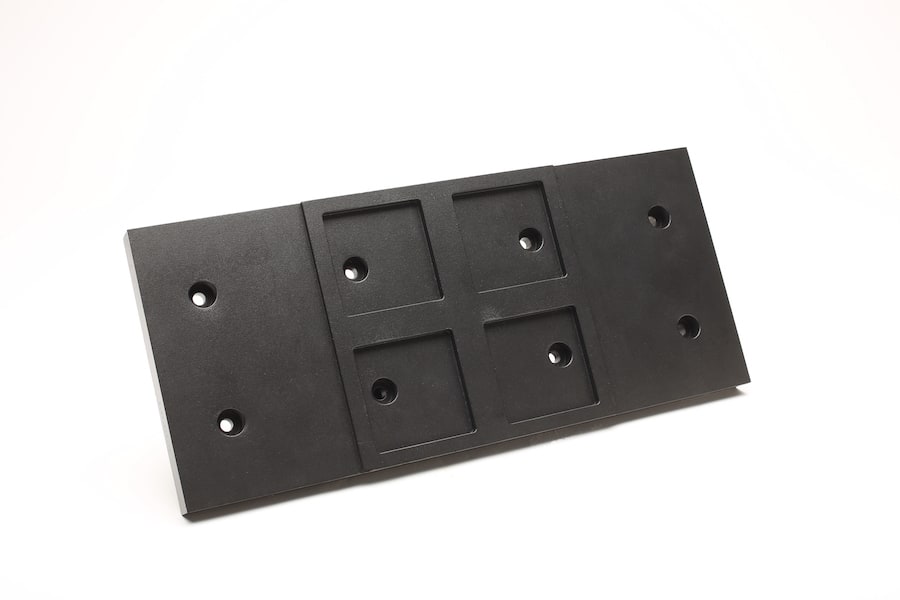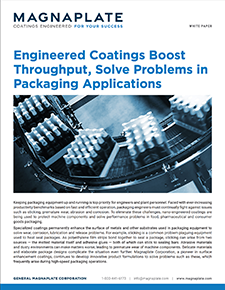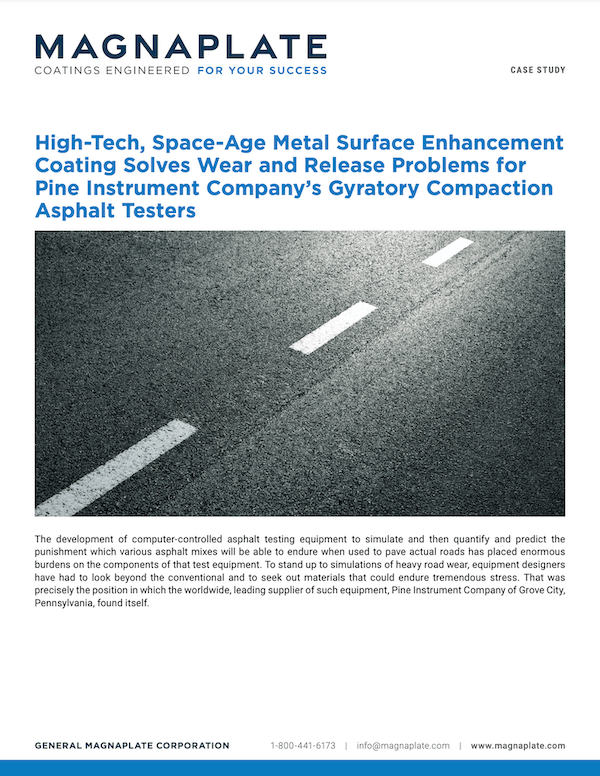
Thermal Spray Coatings
Protection and Benefits That Rival Conventional Coatings
When you need a cost-effective, versatile means of restoring parts or protecting parts against wear, corrosion and abrasion, thermal sprays offer an attractive combination of benefits and efficiency that many traditional coatings cannot match. Our thermal sprays bond to the substrate material to alter its surface properties, forming a barrier that resists a wide range of threats and delivers a lower coefficient of friction (COF). We can also make further enhancements to our proprietary thermal spray coatings, such as by adding polymers to our proprietary Plasmadize® coatings for non-stick release.
Thanks to advanced deposition technologies and robotics, you can apply thermal sprays with substantial thickness quickly and consistently over a wide surface area. This ability reduces costs and lead times. And, when it comes to restoring old parts, you can cut replacement or rebuilding costs while ensuring their continual service. Thermal sprays are compatible with almost any metal, and our capabilities include twin arc, flame spray, plasma and high-velocity oxygen fuel (HVOF) deposition processes.
Advantages
Seals surface voids to eliminate porosity
Thicknesses from 0.002 to 0.010 inch
Hardness beyond Rc scale
Resilient under bending loads
Low surface processing temperatures
Operating temperatures up to 1,300°F
Thermal Spray Processes
Flame Spray
- Combustible gases mix with oxygen to create a flame where powder is induced and propelled to the substrate via compressed gas or air.
- Least amount of bond strength of the processes.
- Wire and rod spray process.
Plasma
- Utilizes a direct current arc and uses inert gases to create a plasma stream that is introduced into the powder. The molten powder is then propelled to the substrate.
- Used for metallics and ceramics.
- Deposition less than 10% porosity.
HVOF (High Velocity Oxygen Fuel)
- Exceeds Mach 2.
- Induces powder into a stream that propels it to the substrate.
- Only used for metallics.
- Best bond strength.
- Densest deposition less than 1% porosity.
Twin Arc
- Two conductive wires are propelled to a substrate as it becomes molten from the compressed air.
- Fastest deposition rates.
- Ideal for repair applications of general wear surfaces.
Discover the Benefits and Cost Advantages of Thermal Sprays
To provide you with the best thermal spray and deposition method for your application, our engineers can review your requirements and suggest your best options.
Contact UsTechnical Resources
Videos
Webinars
White Papers
Engineered Coatings Boost Throughput, Solve Problems in Packaging Applications
Keeping packaging equipment up and running is top priority for engineers and plant personnel. Faced with ever-increasing productivity benchmarks based on fast and efficient operation, packaging engineers must continually fight against issues such as sticking, premature wear, abrasion and corrosion. To eliminate these challenges, nano-engineered coatings are being used to protect machine components and solve performance problems in food, pharmaceutical and consumer goods packaging.
Case Studies
High-Tech, Space-Age Metal Surface Enhancement Coating Solves Wear and Release Problems for Pine Instrument Company's Gyratory Compaction Asphalt Testers
The development of computer-controlled asphalt testing equipment to simulate and then quantify and predict the punishment which various asphalt mixes will be able to endure when used to pave actual roads has placed enormous burdens on the components of that test equipment. To stand up to simulations of heavy road wear, equipment designers have had to look beyond the conventional and to seek out materials that could endure tremendous stress. That was precisely the position in which the worldwide, leading supplier of such equipment, Pine Instrument Company of Grove City, Pennsylvania, found itself.
Blog Posts
How Nedox® Keeps Oil and Gas Wireline Equipment Free From Wear and Corrosion
Nedox® surface treatments keep wireline housings and connectors in the oil and gas industry well-protected in punishing environments.


